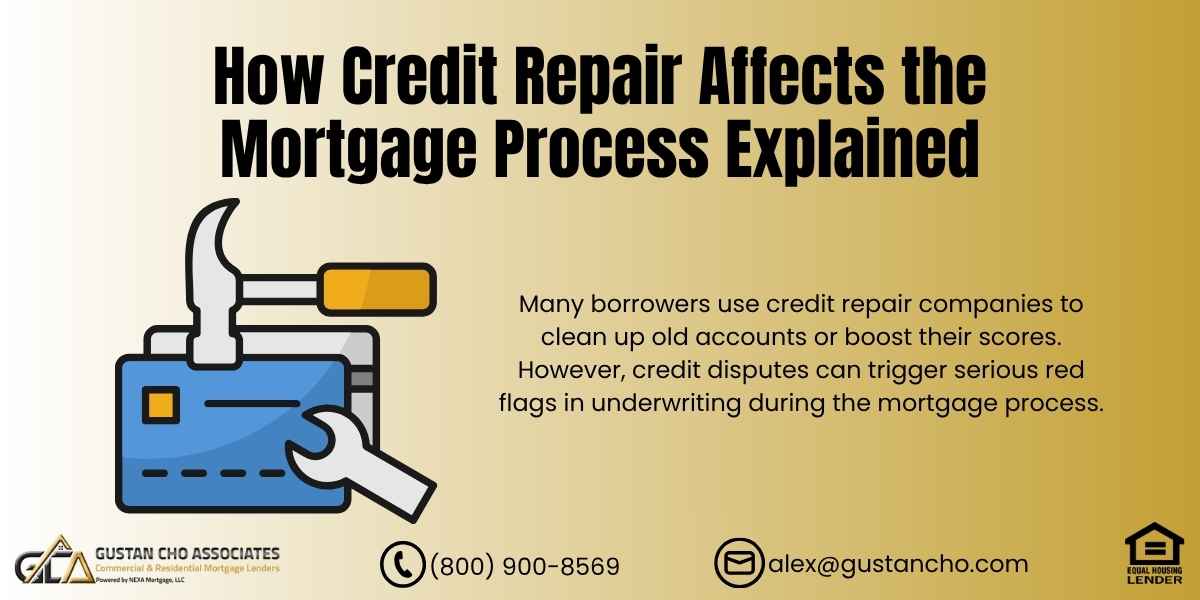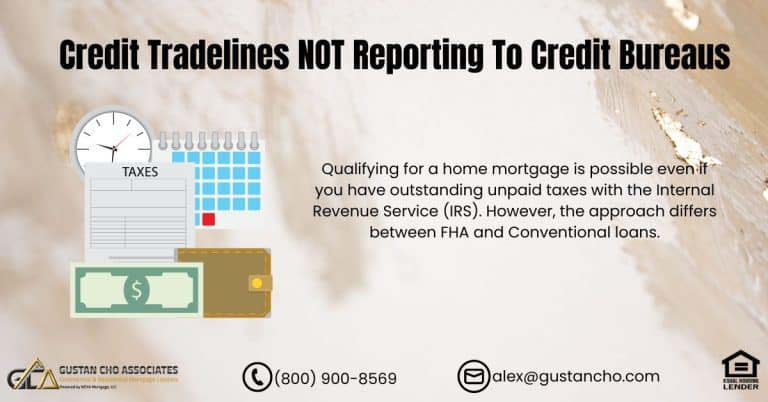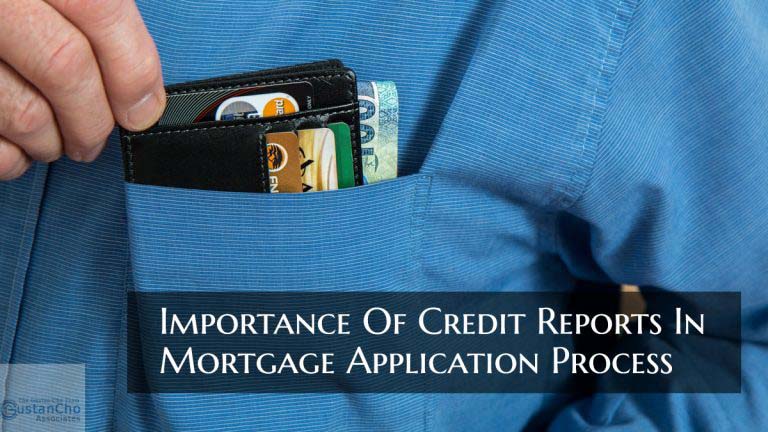How Credit Repair Affects the Mortgage Process: What Borrowers Need to Know
Buying a home is one of the most significant financial steps you’ll ever take — and your credit plays a major role in it. Many homebuyers believe hiring a credit repair company is the fastest way to improve their credit and qualify for a mortgage.
But here’s the truth: credit repair can sometimes do more harm than good.
In this guide, we’ll explain how credit repair affects the mortgage process, why credit disputes can delay or even deny your loan, and what actions you can implement to enhance your credit score safely.
Key Takeaways
- You don’t need to fix your credit to get a mortgage.
- Certain credit disputes can pause or derail your loan approval.
- Disputes on active accounts must be removed before closing.
- Retracting disputes can temporarily lower your credit score.
- Gustan Cho Associates can help you prepare your credit properly — without costly mistakes.
Bad Credit? No Overlays. Real Paths Forward.
Ask about FHA manual underwriting and compensating factors.
Understanding How Credit Repair Affects the Mortgage Process
When you go for a mortgage, lenders take a good look at your credit report. They’re not just looking at your credit score — they’re analyzing your credit history, payment patterns, and whether any accounts are in dispute.
Many borrowers use credit repair companies to clean up old accounts or boost their scores. However, credit disputes can trigger serious red flags in underwriting during the mortgage process.
Here’s why:
When you dispute a derogatory account, credit bureaus temporarily remove that item from your score calculation — as if it doesn’t exist. This artificially inflates your credit score, which means the score the lender sees isn’t accurate.
That’s why FHA, VA, and conventional lenders don’t allow credit disputes on certain accounts during the mortgage process.
Why Credit Repair Can Backfire During Mortgage Qualification
It’s easy to see why credit repair seems attractive. Ads promise to boost your score to “700 in 30 days,” and you might think it’s a quick way to buy a home.
However, it’s important to recognize how credit repair affects the mortgage process. Engaging in credit repair can lead to three significant issues when you’re attempting to qualify for a mortgage:
1. Credit Disputes Delay Underwriting
When you dispute a collection, charge-off, or late payment with a balance, lenders will require that the dispute be retracted or resolved before the loan can move forward.
Retracting a dispute can take 30–90 days, delaying your home closing.
2. Retracting Disputes Can Lower Scores
Once you remove or retract a dispute, the negative item is factored back into your credit score.
Your score may drop 30–80 points — enough to disqualify you from mortgage approval.
3. Public Records Still Appear in Third-Party Searches
Even if a credit repair company “deletes” a bankruptcy or foreclosure from your credit report, lenders run national public record searches.
Those records will reappear during underwriting; if you fail to disclose them, it may be considered mortgage fraud.
How Lenders View Credit Repair During the Mortgage Process
Mortgage lenders — including FHA, VA, and conventional — all have strict rules on credit disputes:
|
Credit Type |
Allowed Disputes During Mortgage Process? |
Notes |
|
Medical Collections |
✅ Yes |
Exempt from dispute restrictions |
|
Non-Medical Collections (under $1,000 total) |
✅ Yes |
Aggregate total must be under $1,000 |
|
Non-Medical Collections (over $1,000 total) |
❌ No |
Must retract before approval |
|
Charge-offs |
❌ No (if balance > $0) |
Must retract or pay off |
|
Tax Liens / Judgments |
❌ No |
Must be resolved before closing |
If your credit report shows active disputes on restricted accounts, your file will be suspended until those disputes are removed.
How Credit Repair Delayed a Borrower’s Mortgage Closing
Meet John:
John had a 630 credit score and wanted to buy his first home. He hired a credit repair company that disputed six collection accounts. His credit score jumped to 680, and he applied for an FHA loan.
During underwriting, the lender noticed the open disputes. John was told he had to remove the disputes before the loan could close. Once he retracted them, his score fell back to 619, which was below the FHA minimum score of 620.
His loan was delayed 45 days, and he lost the house he wanted.
Lesson: Always speak with a loan officer before starting credit repair. Gustan Cho Associates can review your credit report and tell you exactly what actions to take — safely and effectively.
Rapid Rescore vs. Credit Repair — Know the Difference
Fix verified errors fast and avoid delays in underwriting.
Do You Need Credit Repair to Qualify for a Mortgage?
Not necessarily. Contrary to what most borrowers think, you don’t need to pay for credit repair to buy a home.
If your negative items are over two years old, they have minimal impact on your score.
Instead of paying for aggressive disputes, focus on positive credit-building actions, such as:
- Paying down credit card balances below 30% utilization
- Making all payments on time for six months or longer
- Adding small secured credit cards to build a new positive history
- Keeping old accounts open to strengthen your credit age
Remember: good credit behavior outweighs old derogatory accounts.
Dangers of Credit Disputes During the Mortgage Process
Disputing accounts at the wrong time can completely derail your loan.
Here’s a summary of how credit repair affects the mortgage process when disputes are active:
- Suspended Applications: Loans cannot proceed with active disputes on non-medical collections exceeding $1,000.
- Credit Score Drops: Removing disputes lowers scores when the negative data returns.
- Long Delays: Retractions take 30–90 days unless you pay for a rapid rescore (which can cost hundreds).
- Unreliable Reports: The temporary score boost from disputes misleads borrowers into thinking they qualify when they don’t.
That’s why Gustan Cho Associates always advises borrowers to consult with a loan officer before disputing or deleting any accounts.
Here is a link on how to RETRACT CREDIT DISPUTES TO QUALIFY FOR MORTGAGE
How to Safely Improve Your Credit Before Applying for a Mortgage
Instead of relying on credit repair companies, here’s how to legitimately boost your credit the right way:
Review Your Credit Report
It’s important to review your credit report regularly. Take advantage of the free annual reports from Experian, TransUnion, and Equifax. Ensure that all the information presented is accurate and up to date to maintain a healthy credit profile.
Check for any errors on credit report. Need to write a dispute letter to each of the three credit reporting agencies. Each of the three credit reporting agencies has 30 days from receiving a letter to respond to credit dispute.
The credit reporting agency contacts the creditor who is reporting you. That creditor needs to confirm that the debt they are reporting is valid. If the creditor does not respond to the credit reporting agency within the 30 days, the credit reporting agency needs to delete the disputed item. Or they are in violation of the Federal Credit Reporting Act (FCRA)
Pay Down Revolving Debt
One important strategy for managing your credit score is to pay down revolving debt, as credit utilization plays a significant role in determining your score. It’s advisable to maintain your balances at less than 30% of your total available credit to optimize your credit health.
Settle or Pay Off Recent Collections
To improve your standing with lenders, consider settling or paying off recent collections, as they tend to view paid collections more favorably. Focusing on accounts less than 24 months old is particularly important, as these have a more significant impact on your credit profile.
Add Positive Trade Lines
To enhance your credit profile, focus on adding positive trade lines by utilizing secured credit cards or credit-builder loans. Paying your bills on time is very important. Doing this regularly can help increase your credit score over time.
Avoid Opening New Credit Lines
If you’re trying to keep your credit in good shape, it’s best not to open new credit accounts. Each time you do, it can drop your credit score a bit, even for a short time. It’s recommended to keep your credit situation steady for at least 90 days before applying for any new loans to maintain stability. This approach can help you present a stronger credit profile when seeking financing.
Work with a Lender Who Understands Credit
At Gustan Cho Associates, we collaborate with lenders who truly understand the complexities of credit. We specialize in assisting borrowers who may have faced credit challenges in the past, ensuring they can still secure approval for their loans. Importantly, we offer FHA, VA, and USDA loans without additional overlays, making the process smoother for those needing financial assistance.
Expert Guidance from Gustan Cho Associates
At Gustan Cho Associates, our loan officers review credit reports daily. We understand how credit repair affects the mortgage process and what lenders actually look for.
Unlike most lenders, we have no overlays, meaning we follow only agency guidelines, not stricter internal rules.
We can often qualify borrowers that other lenders deny, even with:
- Previous collections or charge-offs
- Past bankruptcies or foreclosures
- Late payments over 12 months old
Before spending hundreds on credit repair, please schedule a consultation with our credit and mortgage experts. We’ll create a step-by-step plan to help you qualify for a home loan the right way — without unnecessary delays.
Before You Dispute: Read This for Mortgage Success
Learn how active disputes can stall FHA, VA, USDA, and Conventional loans.
Repair Credit the Smart Way — Not the Risky Way
Credit repair can improve your score, but when it comes to getting a mortgage, timing and strategy are everything. If you start credit repair too close to applying for a loan, it can trigger disputes that delay or deny your approval.
At Gustan Cho Associates, we guide borrowers step by step through rebuilding credit safely. We’ll help you qualify for a mortgage without risky disputes or unnecessary repair fees — even if other lenders have turned you away.
Borrowers who need a five-star national mortgage company licensed in 50 states with no overlays and who are experts on how credit repair affects the mortgage process, please contact us at 800-900-8569, text us for a faster response, or email us at alex@gustancho.com.
- Related> How Can I Improve Low Credit Scores
- Related> Improving Credit Scores To Qualify For Mortgage
Frequently Asked Questions About How Credit Repair Affects the Mortgage Process:
Q: What Does it Mean When People Talk About How Credit Repair Affects the Mortgage Process?
A: It means how fixing or disputing items on your credit report can help or hurt your chances of getting approved for home loans. Some credit repair actions can raise your score, but others can delay your mortgage.
Q: Can Credit Repair Really Stop Me from Getting a Mortgage?
A: Yes, it can. One of the biggest issues with how credit repair affects the mortgage process is that credit disputes can freeze your application until the disputes are removed or resolved.
Q: Do Lenders Allow Credit Disputes When I Apply for a Home Loan?
A: Most lenders do not. One major rule when discussing how credit repair affects the mortgage process is that you can’t have active disputes on collections or charge-offs with balances during underwriting.
Q: Will Removing Credit Disputes Make My Score Go Down?
A: It can. One way how credit repair affects the mortgage process is when you remove disputes — your score may drop temporarily because the negative items are added back into your credit history.
Q: Do I Need to do Credit Repair Before Applying for a Mortgage?
A: Not always. Many borrowers don’t need professional credit repair. Understanding how credit repair affects the mortgage process helps you focus on paying down balances and adding new positive credit instead of disputing everything.
Q: Can I Get Approved for a Mortgage if I’m in Credit Repair Right Now?
A: It depends. How credit repair affects the mortgage process varies by loan type. FHA and VA loans have certain rules that allow medical or small-balance disputes, but other types do not.
Q: Why Do Loan Officers Warn About Doing Credit Repair Too Soon?
A: Because of how credit repair affects the mortgage process, loan officers know that disputes can trigger delays or even loan denials if not handled correctly. It’s always best to talk to your lender first.
Q: What Should I do Instead of Hiring a Credit Repair Company?
A: If you understand how credit repair affects the mortgage process, you’ll know it’s better to pay down credit cards, make on-time payments, and keep old accounts open — these steps build credit safely.
Q: Can Deleted Bankruptcies or Foreclosures Still Show Up to Lenders?
A: Yes. Even if credit repair removes them from your credit report, lenders still find them in public records. This is a big part of how credit repair affects the mortgage process that borrowers often don’t realize.
Q: Who Can Help Me Understand How Credit Repair Affects the Mortgage Process?
A: The team at Gustan Cho Associates specializes in helping borrowers rebuild credit the right way. They can show you exactly how credit repair affects the mortgage process and what steps to take to safely qualify for a home loan.
This article about “How Credit Repair Affects the Mortgage Process Explained” was updated on October 10th, 2025.
Credit Repair & Mortgages — What Lenders Really See
Understand FICO 2/4/5 scores, disputes, and timing before you apply.











My aunt has been having a lot of problems with her credit, and she would really like to get it repaired in order to get a better mortgage. She would really like to get some help from a professional in order to get it repaired properly, and reduce any problems. I’ll be sure to tell her about how she can get a better interest rate with a cleaner credit report, and a higher credit report.